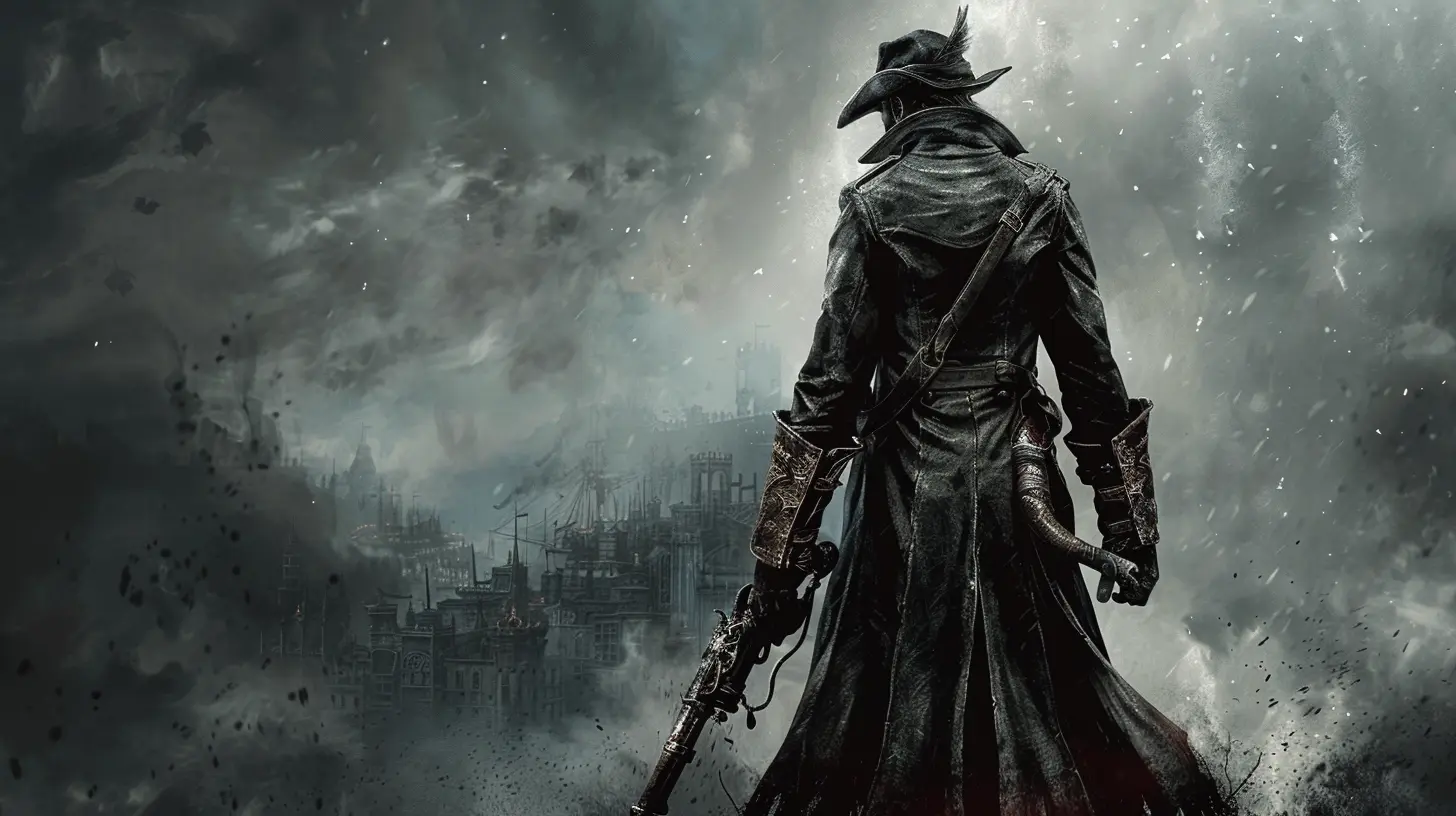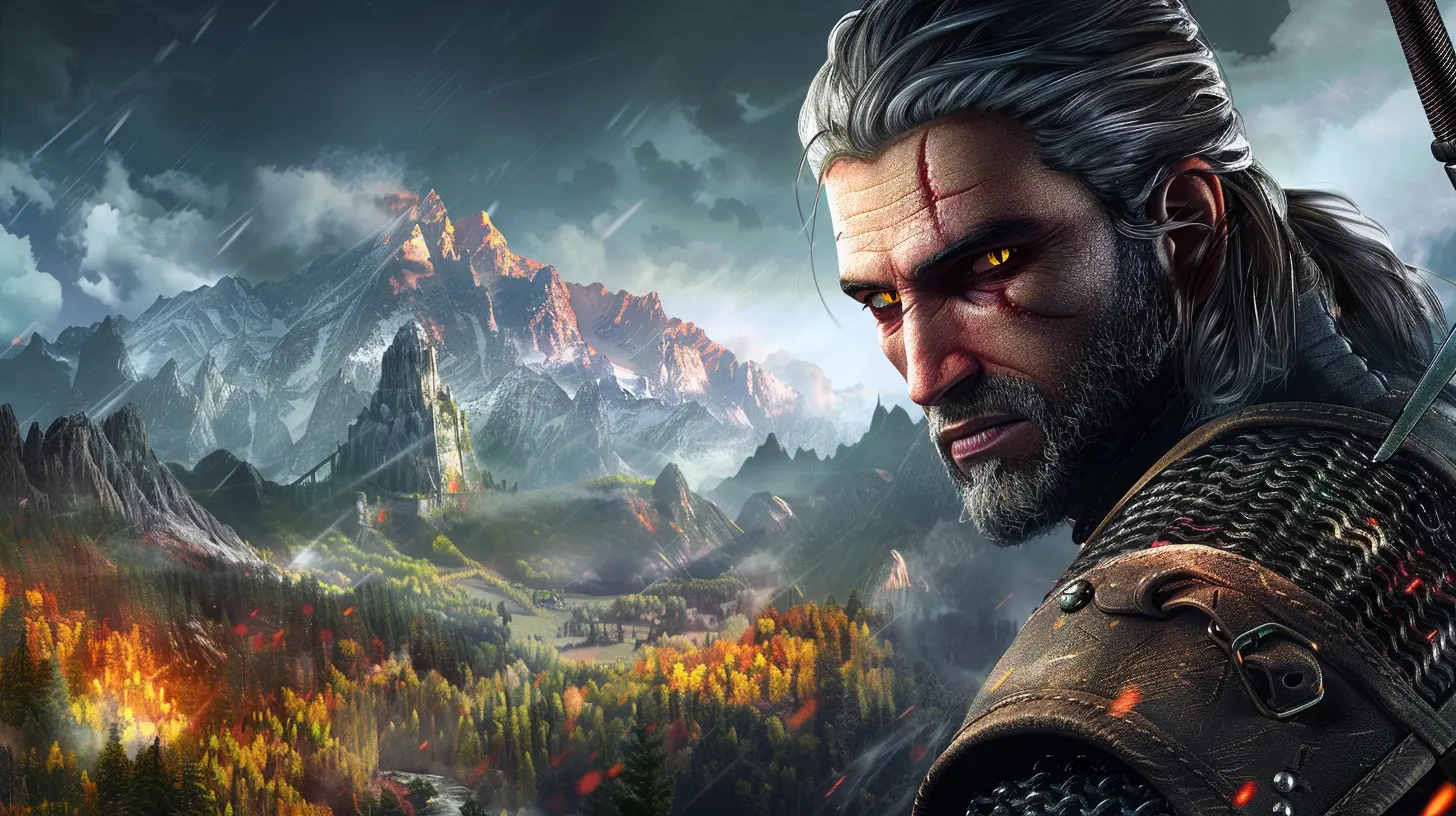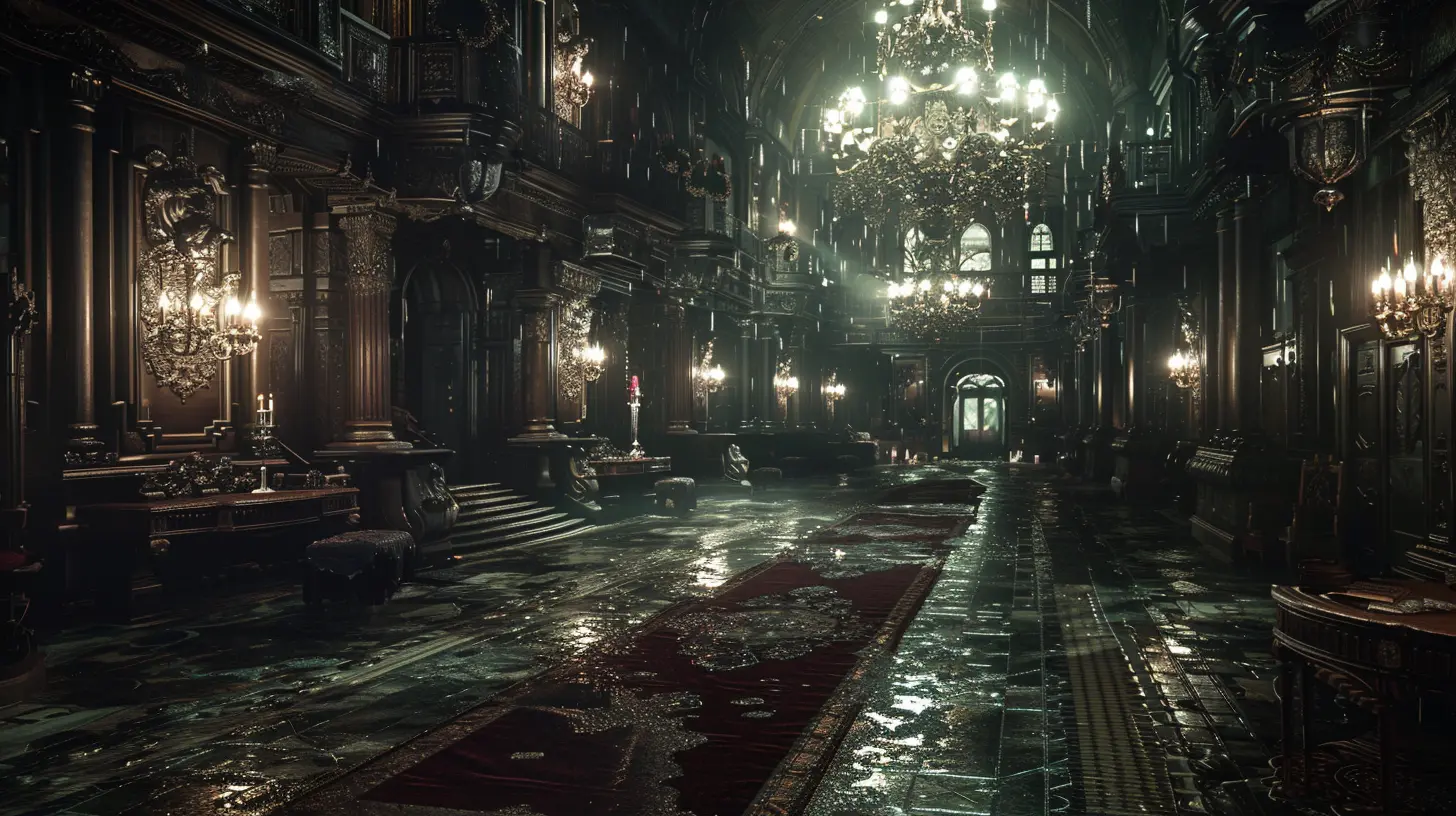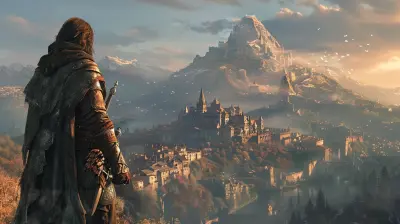Downloadable Content That Was Better Than the Main Game
18 July 2025
Let’s talk about something that’s a bit taboo in the gaming world—when the DLC ends up stealing the spotlight from the main game. It sounds kind of backwards, right? You’d expect the base game, the one you shelled out your hard-earned money for, to be the crown jewel. But every now and then, a downloadable content (DLC) expansion comes along that not only adds to the experience, but flat out outshines the core game.
So, what's going on here? Bad original? Overly ambitious developers? Or maybe, just maybe, the DLC is where the devs finally hit their stride. Either way, we’ve seen DLCs that are so gripping, so well-written, and so polished, they feel like entirely new games—and better ones at that.
Let’s dive into some standout examples of downloadable content that honestly left the main game in the dust.
1. The Witcher 3: Blood and Wine – A Toast to Better Storytelling
Let’s kick things off with a DLC that’s often talked about like it’s a full game in itself. "Blood and Wine" wasn’t just a follow-up—it was the grand finale Geralt deserved.While The Witcher 3: Wild Hunt is already legendary, "Blood and Wine" took it up a notch. Set in the sunny, vibrant land of Toussaint—a sharp contrast to the war-torn kingdoms of the main game—this expansion was like stepping into a fairy tale twisted by nightmare fuel.
What made it better?
- A self-contained story that hit all the right emotional and action-packed notes
- Better pacing and far fewer side quests that felt like chores
- A brand new map that could give any full game a run for its money
- And the writing? Spot-on. Mature, dark, and witty—classic Witcher.
If the main game was Geralt’s epic saga, "Blood and Wine" was his victory lap—and it nailed the landing.
2. Far Cry 3: Blood Dragon – Neon-Drenched, 80s-Fuelled Perfection
Now this one’s a wild card."Blood Dragon" is technically a standalone expansion, but it uses the Far Cry 3 engine. It trades gritty jungle survival for an over-the-top, neon-lit, 80s action movie fever dream. And somehow, it works.
The irony? A lot of players found "Blood Dragon" more entertaining than Far Cry 3 itself—and that game was no slouch.
Why did it stand out?
- Hilarious writing that doesn’t take itself seriously
- An art style that’s all Tron-meets-Terminator
- Classic one-liners and cheesy voice-overs that are oddly charming
- Perfect pacing—you can beat it in a few sittings, and it never drags
It was short, stupid fun—and sometimes, that’s exactly what you need.
3. Mass Effect 3: Citadel – The Goodbye We Deserved
Mass Effect 3 had one of the most controversial endings in gaming history. Let’s not open that wound again.But when BioWare dropped the "Citadel" DLC, it felt like an apology—or maybe just a way to give fans the send-off they truly wanted.
Here’s the thing: this DLC wasn’t about saving the galaxy. It was about saying goodbye with heart, humor, and nostalgia in perfect harmony.
Why it stole the show:
- Emotional payoff for long-time fans
- A fun, self-aware tone that pokes fun at itself
- A heartfelt celebration of every character you came to love
- A party scene that’s equal parts hilarious and touching
For many players, "Citadel" felt more ‘Mass Effect’ than the actual finale.
4. Red Dead Redemption: Undead Nightmare – Zombies Done Right
"Undead Nightmare" took everything great about Red Dead Redemption and threw a rotting, brain-eating twist on it.On paper, a zombie DLC sounds tired. But Rockstar made it sing.
They didn’t just throw zombies into the existing map—they reworked mechanics, added creepy atmosphere, and told a surprisingly compelling story that meshed seamlessly with the original world.
What made it click?
- A totally new tone—dark humor with supernatural flair
- Brilliant voice acting and eerie music
- A perfect alternative universe without wrecking the main game’s lore
- The fun factor—riding a flaming horse while mowing down undead? Yes, please.
A lot of fans would argue it was more fun—and less emotionally exhausting—than the base game.
5. Dark Souls: Artorias of the Abyss – Filling the Lore Gaps
Dark Souls is cryptic. That’s its charm. But even the most die-hard players felt there were pieces missing in the lore puzzle.Enter "Artorias of the Abyss."
This DLC did something rare: it made the overall game better by existing. It didn’t just tack on new areas—it gave context, depth, and epic boss battles that rounded out the world Lordran.
Why players loved it:
- Fantastic level design that nailed the risk-reward balance
- One of the most beloved bosses in the series: Knight Artorias
- Rich storytelling told through subtle environmental cues
- A deeper understanding of the Abyss and its impact
Fans still cite this as peak Soulsborne content. And let’s be honest—some of those base game bosses? They don’t hold a candle to Artorias.
6. Fallout: New Vegas – Old World Blues – Funny, Weird, and Brilliant
Fallout: New Vegas is a cult favorite, but the real star in its DLC lineup? "Old World Blues."This expansion dropped the gritty realism and went full-on sci-fi pulp. Think mad scientists, talking appliances, and absurd experiments—and somehow, it all worked beautifully.
Here's why it shines:
- Hilarious writing that actually has depth beneath the jokes
- A surreal atmosphere that never gets old
- Unique weapons and gear that changed your playstyle
- Standout characters that could carry entire games on their own
It had the creativity and heart that defined the series, and many fans walked away remembering "Old World Blues" more fondly than the Mojave itself.
7. Borderlands 2: Tiny Tina’s Assault on Dragon Keep – D&D Mayhem Perfected
Borderlands 2 was already massive. But "Tiny Tina’s Assault on Dragon Keep"? That was something else entirely.The devs flipped the script with a Dungeons & Dragons-inspired campaign narrated by Tiny Tina’s chaotic energy. It added humor, emotion, and brilliantly bizarre quests.
Why it stands out:
- A creative twist on traditional fantasy tropes
- Genuinely emotional undertones layered beneath the silliness
- A versatile combat experience thanks to magical elements
- Great pacing—you never feel like you're grinding just to progress
It was so good, they literally turned it into a standalone game later on. Yeah, it was that good.
8. Dishonored: The Knife of Dunwall / The Brigmore Witches – The Other Side of Revenge
Dishonored was a slick stealth game with a unique art style and story. But a lot of players felt the main character, Corvo, was a bit too silent and stoic.Enter Daud—the character you play in these two interconnected DLCs. The man who killed the Empress.
It was bold. It was risky. And it totally paid off.
Here’s why it worked:
- A morally grey protagonist with actual voice lines and personality
- A gripping storyline full of redemption and regret
- Gameplay tweaks that made stealth more interactive
- A deeper look at Dunwall’s seedy underbelly
For many fans, Daud’s story felt more human—and hit harder—than Corvo’s.
9. XCOM: Enemy Within – Strategic Depth Mastered
XCOM already nailed the tactical alien warfare vibe. But when "Enemy Within" dropped, it transformed the whole game.It wasn’t traditional DLC—it was more of a full-on overhaul. And it made the game so much better.
Why it worked:
- Added new enemies, new missions, and new maps
- Introduced game-changing mechanics like genetic mods and MEC troopers
- Boosted replayability and tactical options
- Balanced difficulty with smarter AI
If you played XCOM without "Enemy Within", some would say you haven’t really played XCOM at all.
10. Assassin’s Creed IV: Freedom Cry – Slave to None
"Freedom Cry" started as a DLC, but it struck such a chord that it eventually became a standalone title. Set after the events of Black Flag, it follows Adewale—a former slave turned assassin.It had a lot going for it:
- A more emotionally resonant story than the pirate-heavy Black Flag
- Serious themes of oppression, rebellion, and freedom
- Short, but densely packed with meaningful content
- Gritty tone that didn’t pull punches
While Black Flag was all swashbuckling fun, "Freedom Cry" brought the kind of weight and depth that reminded you what Assassins stand for.
Final Thoughts
DLCs are often seen as cash grabs—extras that probably should’ve just been in the base game. But when they’re done right, they can elevate a game instead of just extending it. Sometimes, they even outshine the original completely.From richer narratives to better gameplay and tighter pacing, these expansions prove that great things really can come in (downloadable) packages.
So the next time you're wondering whether a DLC is worth your time—just remember, sometimes the best parts of a game aren't in the box. They're the bonus content waiting to be downloaded.
all images in this post were generated using AI tools
Category:
Downloadable ContentAuthor:

Leandro Banks
Discussion
rate this article
2 comments
Kayla Sanchez
While often seen as cash grabs, some DLC packs surpass their main games by offering richer narratives, refined mechanics, and deeper exploration, proving that bonus content can shine brighter.
October 11, 2025 at 4:25 PM

Leandro Banks
I completely agree! When done well, DLC can enhance the overall experience and bring fresh depth to the original game.
Meagan McKinstry
Great read! It’s fascinating how DLC can sometimes outshine the main game, adding depth and excitement.
July 21, 2025 at 3:51 AM

Leandro Banks
Thank you! It’s true—DLC can often introduce unique elements that elevate the overall experience. I'm glad you enjoyed the article!


